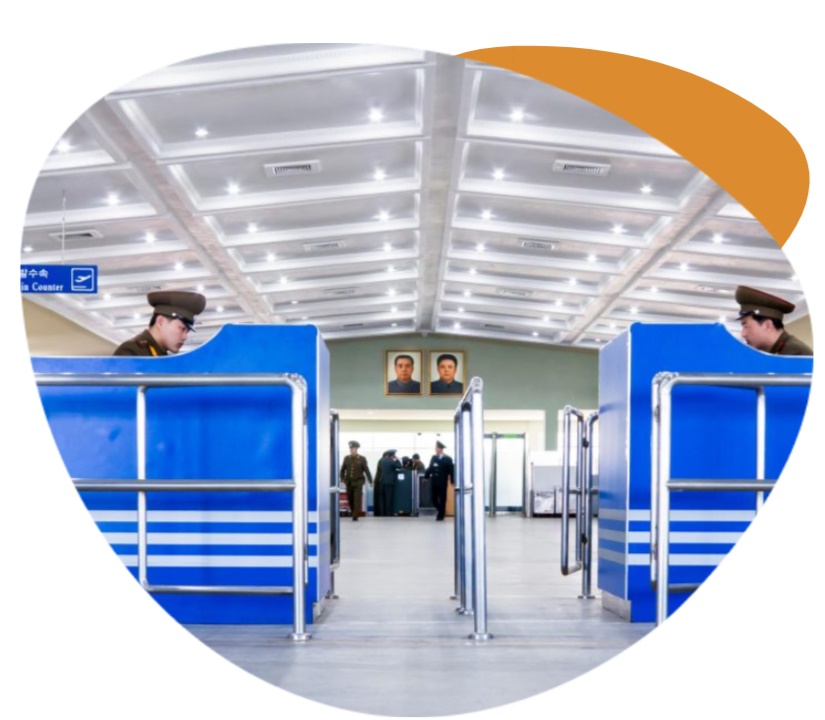Opening Doors in the Democratic People’s Republic of Korea
DOI :
https://doi.org/10.21153/thl2021volno0art1314Mots-clés :
Democratic People’s Republic of Korea, international humanitarian aid, social enterprise, education, tourism, emergency response and preparednessRésumé
This paper considers the opportunities for effective humanitarian collaboration in the Democratic People’s Republic of Korea (DPRK). It brings together perspectives from three individuals with extensive lived experience working in the DPRK. Collectively, these authors have worked in various sectors of international humanitarian aid and other areas of engagement such as emergency response and preparedness, education, social enterprise and tourism. The paper draws from these experiences to present lessons on overcoming obstacles and harnessing opportunities in the DPRK.
Métriques
Téléchargements
Références
Abrahamian, A. (2020). Being in North Korea. Brookings Institute.
Brown, V.A., Deane, P.M., Harris, J.A. & Russell, J.Y. (2010). Towards a just and sustainable future, in J Harris, VA
Brown & J Russell (Eds), Tackling wicked problems: through the transdisciplinary imagination. Routledge, 3–15.
Flake, L.G. & Snyder, S (Eds). (2003). Paved with good intentions: the NGO experience in North Korea. Greenwood Publishing Group.
Glenk, F.J. (2020). Who adjusts to North Korea? The politics of humanitarian aid [master’s thesis]. Seoul National University.
Goodkind, D. & West, L. (2001). The North Korean famine and its demographic impact, Population and Development Review, 27(2), 219–238.
Médecins sans Frontières. (2014). MSF and North Korea: 1995–1998. https://www.msf.org/speakingout/msf-and-northkorea-1995-1998
Miller, J.L. (2012). Psychosocial Capacity Building in Response to Disasters. Columbia University Press.
O’Carroll, C. (2021, March 18). No UN or NGO workers left in North Korea after more expats depart Pyongyang.
Reed, E. (2004). Unlikely partners: humanitarian aid agencies and North Korea, in C Ahn, N Eberstadt and Y Lee (Eds), A new international engagement framework for North Korea?: Contending perspectives. The Korea Economic Institute of America, 199–229.
Saccone, R. (2003). Negotiating with North Korea. Hollym International.
Smith, H. (2000). Bad, mad, sad or rational actor? Why the ‘securitization’ paradigm makes for poor policy analysis of North Korea, International Affairs, 76(3), 111–132.
Snyder, S. (1999). Negotiation on the edge: North Korea negotiating behavior. United States Institute of Peace Press.
Solinska-Nowak, A., Magnuszewski, P., Curl, M., French, A., Keating, A., Mochizuki, J., Liu, W., Mechler, R., Kulakowska, M. & Jarzabek, L. (2018). An overview of serious games for disaster risk management: prospects and limitations for informing actions to arrest increasing risk, International Journal of Disaster Risk Reduction, 31, 1013–1029.
United Nations DPR Korea. (2014). UNCT DPRK Sector Working Groups. https://dprkorea.un.org/en/10761-unct-dprksector-working-groups
United Nations High Commissioner for Refugees. (2015). Emergency Handbook. https://emergency.unhcr.org/
United Nations Humanitarian Country Team. (2019). DPR Korea Needs and Priorities 2019. https://dprkorea.un.org/sites/default/files/2019-07/DPRK_NP_2019_Final.pdf
United Nations Humanitarian Country Team. (2020). DPR Korea Needs and Priorities 2020. https://reliefweb.int/sites/reliefweb.int/files/resources/2020_DPRK_Needs_and-Priorities_Plan.pdf
United Nations Office for the Coordination of Humanitarian Affairs. (2017). OCHA on Message: The humanitarian principles. https://www.unocha.org/node/897
Zadeh-Cummings, N. (2019). Humanitarians in the Hermit Kingdom: NGOs, aid, and access in the DPRK [doctoral dissertation]. City University of Hong Kong.
Zadeh-Cummings, N. & Harris, L. (2020). The impact of sanctions against North Korea on humanitarian aid, Journal of Humanitarian Affairs, 2(1), 44–52.







